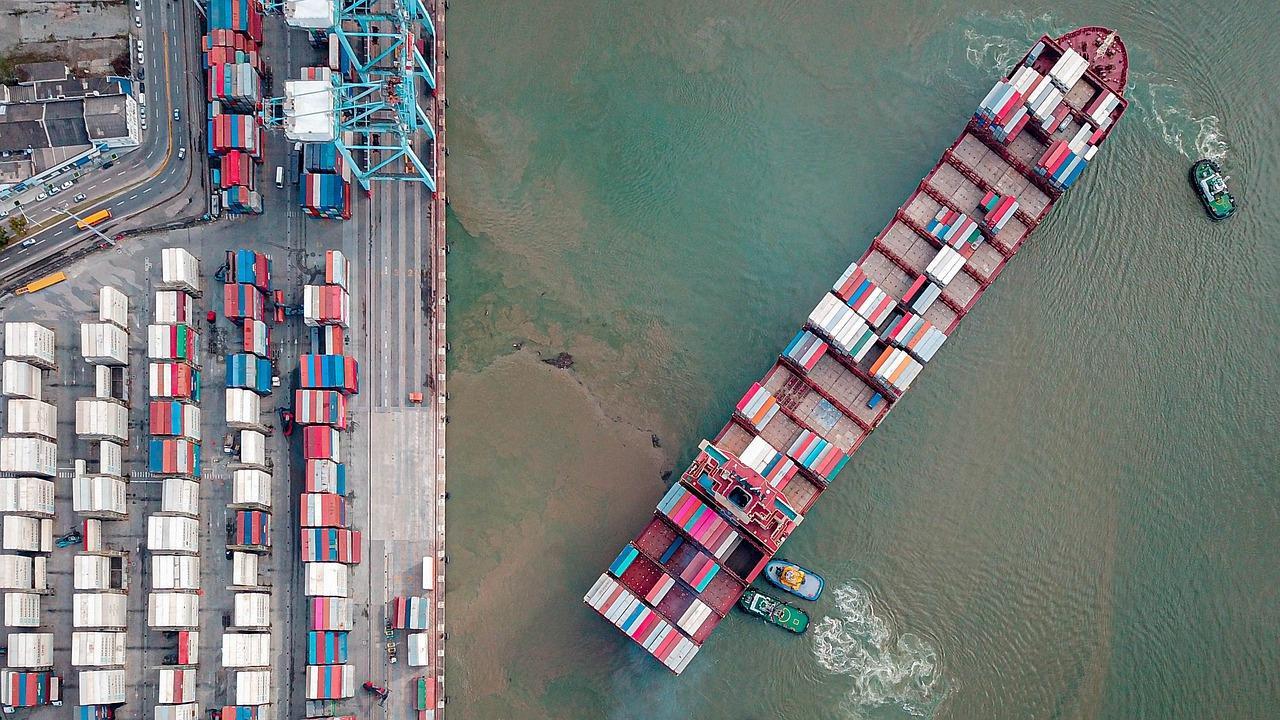The textile industry is one of the sectors that is powered by the best of both worlds – design and technology. As such, there is always room for businesses to explore and experiment, and stand out from the competitive crowd. With the international market brimming with opportunities, now is a good time for textile businesses to take their business beyond borders.
When transitioning from local to global, businesses are sure to face certain challenges primarily associated with secure financing, credit protection, and strict regulations. This is where global trade finance comes to the rescue. Trade finance can help reduce risks associated with overseas trade in terms of shipping, credit, currency, regulations, policies, and more.
Trade finance can be leveraged by both buyers and sellers to accelerate business growth as it facilitates the delivery of goods and services internationally, with little to no risks. Let’s take a closer look at the main advantages, and the tools that help businesses make the most of these benefits.
Key Benefits Of Global Trade Finance
1. Easy Access To Capital:
International trade finance enables hassle-free transactions across borders for textile companies. It also gives them easy access to capital when promising and profitable opportunities arise in the global market. Trade finance can provide textile businesses with access to capital that they can use to fund their operations, such as purchasing raw materials or financing production. This can help businesses avoid cash flow issues that may arise from delayed payments or other challenges.
2. Ensuring Smooth Operations:
The benefits of global trade finance extend beyond just the financial aspects of the business. It also helps establish consistency when it comes to the smooth running of operations. How so? The capital acquired from reliable trade finance providers bridges the cash flow gap while the business is waiting for expected payments to roll in from global clients.
3. Improved Cash Flow:
With trade finance tools like factoring or invoice discounting, textile businesses can receive immediate payment for the products supplied. This helps improve their cash flow and eliminate the need to seek short-term financing from conventional financial institutions like banks. With factoring, businesses can receive cash payments based on accounts receivable. On the other hand, a letter of credit can reduce the risk of non-payment or delays.
4. Reduces Financial Risks:
Trade finance can help businesses with building effective risk management plans. It can help textile businesses manage risks associated with trade transactions. Owing to a lack of funds, buyers may not be able to make payments in time, creating a sense of distrust among their suppliers. With services provided by trade financing companies, businesses can trade seamlessly despite unprecedented fluctuations in the global market. In addition, reliable trade finance companies are adept at managing the challenges associated with international currency costs and transactions.
5. Global Network Building:
Trade finance enables textile businesses to offer more favorable payment terms to buyers, helping them become preferred partners in competitive markets. It can help them establish long-term relations with customers. With trade finance, suppliers can take up more orders while also providing longer payment terms to buyers. This enables them to maintain their growth curve, along with maintaining good relations with retailers.
Most Common Trade Finance Solutions for Textile Businesses
Trade finance is one of the most effective ways of addressing the challenges faced by textile businesses that aspire to expand in global markets, or are already engaged in global trade. The key reason is that it can provide businesses with multiple financing and risk management tools. Here are some of the most common trade finance solutions for textile businesses:
1. Letters of Credit (LCs):
A letter of credit is issued by a bank on the behalf of the buyers. It guarantees that the seller will receive payment in exchange for the good products and services delivered to the buyers. If the buyers are unable to make the payment, the bank or the financial institution will step up and pay the seller according to the terms and conditions stated in the letter of credit.
2. Factoring:
When exporting goods overseas, suppliers are usually required to agree upon payment terms that require them to wait for months to receive payment. This is where factoring, also called invoice financing, is the best solution. It is a type of post-export finance wherein a third-party financing company clears the invoice amount immediately. Once the invoice is ready, the buyer has to pay the third-party financing company instead of the supplier.
3. Supply Chain Financing:
Supply chain finance, also called reverse factoring, is set up by the buyer who ensures the supplier is on board. The buyer receives the order from the supplier and approves the invoice. Then, suppliers’ invoices are paid immediately by a bank or other agencies on behalf of the buyer. The banks or other financial institutions play the key role of a third-party responsible for providing short-term credit that provides liquidity to both buyers and sellers.
Tradewind: Empowering Textile Businesses
Tradewind Finance provides international trade finance to the world’s small- and mid-market. Founded in the year 2000, with more than 20 offices worldwide, we transact across all continents. Because of our deep understanding of the textile and apparel industry, we can provide each client with a tailor-made solution based on location, products, and payment terms.
We finance sales to leading brands including Gap, Ralph Lauren, H&M, Dockers, Target, Levi’s, Inditex, C&A, New Yorker, Pepe Jeans, Arcadia Group, Express, and more. Located in India, Bangladesh, Pakistan, China, Vietnam, and Turkey, our clients typically sell to major retailers and wholesalers in the U.S., Europe, and the Middle East.
We provide pre-export and export financing for sales made on open accounts, letters of credit, and documentary collections payment terms. Our innovative solutions help accelerate clients’ cash flow and allow them to increase their turnover and take on larger purchase orders for faster growth.
Our international expertise enables us to structure credit facilities for companies based anywhere in the world and that transact in USD, EUR, GBP, and other major currencies. Using purchase order funding, inventory lending, letters of credit, and structured guarantees, our solutions help align the needs of both buyers and sellers and minimize risk across the supply chain.


